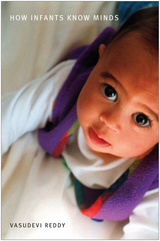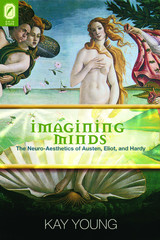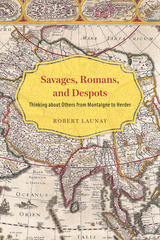
Hospitality reproduces a two-year seminar series delivered by Jacques Derrida at the École des hautes études en sciences sociales in Paris between 1995 and 1997. In these lectures, Derrida asks a series of related questions about responsibility and “the foreigner”: How do we welcome or turn away the foreigner? What does the idea of the foreigner reveal about kinship and the state, particularly in relation to friendship, citizenship, migration, asylum, assimilation, and xenophobia? Derrida approaches these questions through readings of several classical texts as well as modern texts by Heidegger, Arendt, Camus, and others. Central to his project is a rigorous distinction between conventional, finite hospitality, with its many conditions, and the aspirational idea of hospitality as something offered unconditionally to the stranger. This volume collects the first year of the seminar.

Most psychologists claim that we begin to develop a “theory of mind”—some basic ideas about other people’s minds—at age two or three, by inference, deduction, and logical reasoning.
But does this mean that small babies are unaware of minds? That they see other people simply as another (rather dynamic and noisy) kind of object? This is a common view in developmental psychology. Yet, as this book explains, there is compelling evidence that babies in the first year of life can tease, pretend, feel self-conscious, and joke with people. Using observations from infants’ everyday interactions with their families, Vasudevi Reddy argues that such early emotional engagements show infants’ growing awareness of other people’s attention, expectations, and intentions.
Reddy deals with the persistent problem of “other minds” by proposing a “second-person” solution: we know other minds if we can respond to them. And we respond most richly in engagement with them. She challenges psychology’s traditional “detached” stance toward understanding people, arguing that the most fundamental way of knowing minds—both for babies and for adults—is through engagement with them. According to this argument the starting point for understanding other minds is not isolation and ignorance but emotional relation.


Beginning with Mandeville and Montaigne, and working through Montesquieu, Diderot, Gibbon, Herder, and others, Launay traces how Europeans both admired and disdained unfamiliar societies in their attempts to work through the inner conflicts of their own social worlds. Some of these writers drew caricatures of “savages,” “Oriental despots,” and “ancient” Greeks and Romans. Others earnestly attempted to understand them. But, throughout this history, comparative thinking opened a space for critical reflection. At its worst, such space could give rise to a sense of European superiority. At its best, however, it could prompt awareness of the value of other ways of being in the world. Launay’s masterful survey of some of the Western tradition’s finest minds offers a keen exploration of the genesis of the notion of “civilization,” as well as an engaging portrait of the promises and perils of cross-cultural comparison.
READERS
Browse our collection.
PUBLISHERS
See BiblioVault's publisher services.
STUDENT SERVICES
Files for college accessibility offices.
UChicago Accessibility Resources
home | accessibility | search | about | contact us
BiblioVault ® 2001 - 2024
The University of Chicago Press









